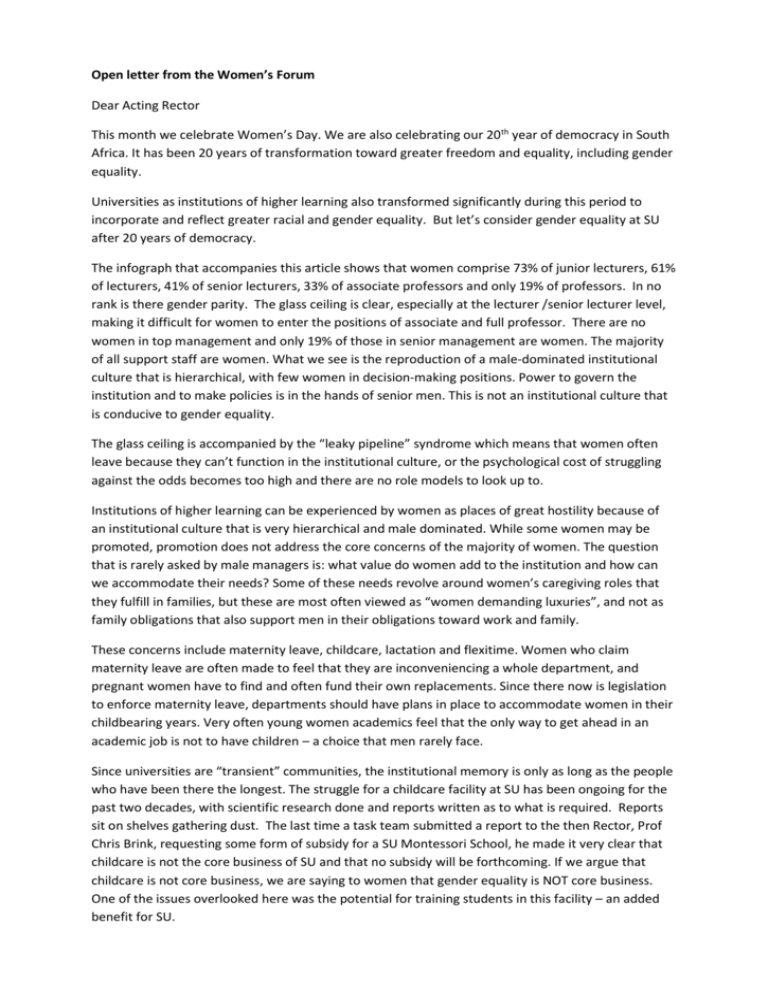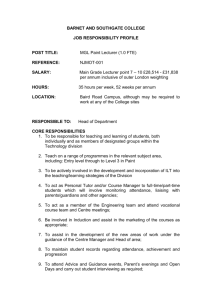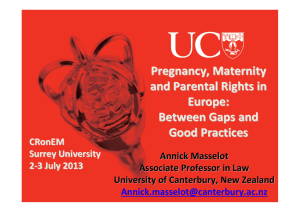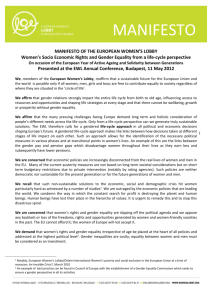WF_Open_letter_infographic
advertisement

Open letter from the Women’s Forum Dear Acting Rector This month we celebrate Women’s Day. We are also celebrating our 20th year of democracy in South Africa. It has been 20 years of transformation toward greater freedom and equality, including gender equality. Universities as institutions of higher learning also transformed significantly during this period to incorporate and reflect greater racial and gender equality. But let’s consider gender equality at SU after 20 years of democracy. The infograph that accompanies this article shows that women comprise 73% of junior lecturers, 61% of lecturers, 41% of senior lecturers, 33% of associate professors and only 19% of professors. In no rank is there gender parity. The glass ceiling is clear, especially at the lecturer /senior lecturer level, making it difficult for women to enter the positions of associate and full professor. There are no women in top management and only 19% of those in senior management are women. The majority of all support staff are women. What we see is the reproduction of a male-dominated institutional culture that is hierarchical, with few women in decision-making positions. Power to govern the institution and to make policies is in the hands of senior men. This is not an institutional culture that is conducive to gender equality. The glass ceiling is accompanied by the “leaky pipeline” syndrome which means that women often leave because they can’t function in the institutional culture, or the psychological cost of struggling against the odds becomes too high and there are no role models to look up to. Institutions of higher learning can be experienced by women as places of great hostility because of an institutional culture that is very hierarchical and male dominated. While some women may be promoted, promotion does not address the core concerns of the majority of women. The question that is rarely asked by male managers is: what value do women add to the institution and how can we accommodate their needs? Some of these needs revolve around women’s caregiving roles that they fulfill in families, but these are most often viewed as “women demanding luxuries”, and not as family obligations that also support men in their obligations toward work and family. These concerns include maternity leave, childcare, lactation and flexitime. Women who claim maternity leave are often made to feel that they are inconveniencing a whole department, and pregnant women have to find and often fund their own replacements. Since there now is legislation to enforce maternity leave, departments should have plans in place to accommodate women in their childbearing years. Very often young women academics feel that the only way to get ahead in an academic job is not to have children – a choice that men rarely face. Since universities are “transient” communities, the institutional memory is only as long as the people who have been there the longest. The struggle for a childcare facility at SU has been ongoing for the past two decades, with scientific research done and reports written as to what is required. Reports sit on shelves gathering dust. The last time a task team submitted a report to the then Rector, Prof Chris Brink, requesting some form of subsidy for a SU Montessori School, he made it very clear that childcare is not the core business of SU and that no subsidy will be forthcoming. If we argue that childcare is not core business, we are saying to women that gender equality is NOT core business. One of the issues overlooked here was the potential for training students in this facility – an added benefit for SU. Lactating mothers often have to rush between classes and feeding a baby, while this does not need to be the case. Free State University, for example, is in the process of creating “lactation rooms”. A university is a place that is conducive to flexitime. Academic staff can work around classes and support staff can start earlier and leave earlier. Women and men will function much better when they do not have to worry about arrangements for children and are able to do at least some work from home. Women’s work and well-being are often undermined through sexual harassment that is rife on all campuses in South Africa. SU is no exception: in the past eight months the Sexual Harassment Advisory Committee has dealt with six cases. As a university we need to be concerned with the toxic environment that this behavior creates for staff in general, but for women specifically. Women’s career paths look different to those of men. They often enter the academy later than men because of child bearing and raising. As the infograph shows, women frequently become trapped in junior lecturer or lecturer positions, teaching very large classes. This contributes to fewer research outputs and fewer rewards. SU has designed reward systems in a way that only awards exceptional achievement and has made it the norm. The same people are rewarded over and over again. The fact that only four women could be found to be awarded the title of “Distinguished Professor” is a case in point. The institutional argument is that the pool is so small (and this is confirmed by the infograph; however, the pool is definitely bigger than four), but the question that is not asked is WHY the pool is so small. Why is there a glass ceiling for women? Why are the contributions women make not considered of value? Prof Russel Botman, before his untimely death, requested the appointment of a task team to investigate and come up with strategies for women’s career development. One of the biggest problems for women is the lack of pay equity. In all ranks all women are paid less than men. (This was confirmed by HR). This does not only amount to discrimination, but is in breach of labour legislation. If the SU is serious about gender equality, eradicating the pay gap is the place to start with creating gender equality. Transformation is costly and the institution cannot make women’s equality conditional on “the availability of money”. It has to put its money toward gender transformation. In the spirit of Women’s Month, the SU Women’s Forum now demand decisive action from management regarding women’s career development, pay equity, childcare and maternity leave, as well as a 50% quota for women on important decision-making bodies, coupled with explicit targets for the promotion of women on all job levels, being budgeted for in departmental strategic plans. A succession plan for top management that would lead to the appointment of women on this level should also be developed. The slow progress that has been made in the past twenty years cannot be allowed to continue. Yours sincerely The Executive of the Women’s Forum.











